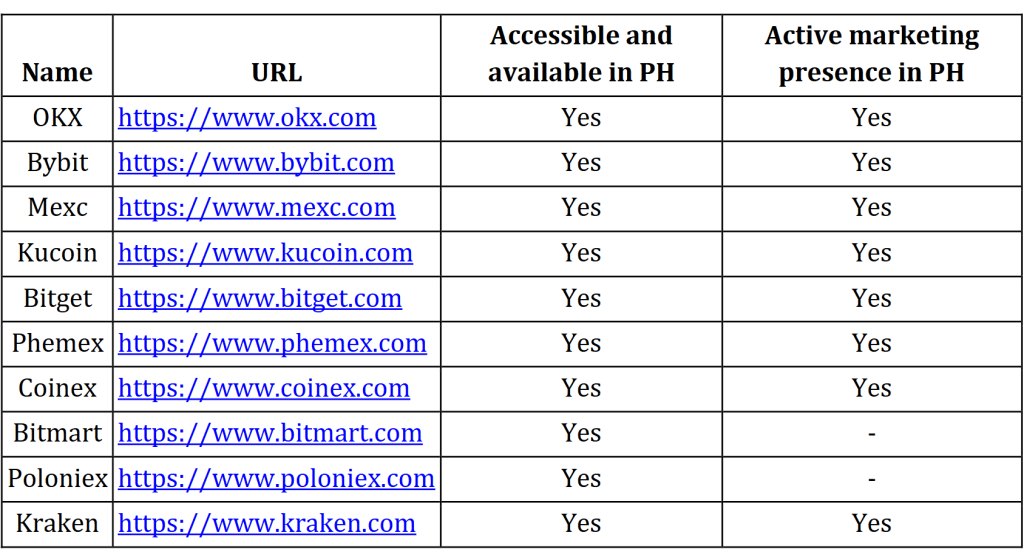The Philippine Securities and Exchange Commission issues a strong warning against 10 leading digital asset exchanges, including OKX and Bybit, for illegal activities, reflecting a trend of increased regulatory control throughout Southeast Asia.
The Philippine Securities and Exchange Commission (SEC) has sent a strong message to the domestic digital asset market, naming a series of major exchanges including OKX, Bybit, and KuCoin for operating without a license. In an official advisory issued on August 4, the regulator warns that these platforms continue to approach Philippine investors without complying with the newly effective regulations, while facing the risk of severe legal measures.
According to the SEC's announcement, the exchanges named, along with MEXC, Kraken, and Bitget, are all accused of operating without the necessary license or approval to raise funds from the public in the Philippines. The regulator asserts: "The actions of these exchanges are illegal and put Philippine investors in a situation of serious risk."
 The Philippine Securities and Exchange Commission (SEC) warns about 10 cryptocurrency exchanges. Source: SEC.gov.ph
The Philippine Securities and Exchange Commission (SEC) warns about 10 cryptocurrency exchanges. Source: SEC.gov.ph
The SEC warns it will not hesitate to take strong measures, including issuing cease-and-desist orders, criminal prosecutions, and coordinating with technology companies like Google, Apple, and Meta to remove applications and restrict marketing activities. This move recalls similar actions from the previous year when the SEC requested the removal of the Binance app from app stores in the Philippines.
The actions of the Philippines are not an isolated phenomenon but reflect a growing trend of increased regulation spreading across Southeast Asia, where regulators are increasingly aggressively controlling the activities of offshore exchanges. The fight against platforms operating in the regulatory 'gray area' is intensifying, forcing businesses to have local operating licenses to access the legal market.
In Thailand, in May, the country's Securities Commission ordered the blocking of access to 5 digital asset exchanges, including Bybit and OKX, to combat illegal activities and money laundering.
Meanwhile, Indonesia applies tax policy tools to create a level playing field. The government has significantly increased the tax rate on transactions on foreign exchanges to 1% – nearly five times the 0.21% rate applied to licensed domestic exchanges.

